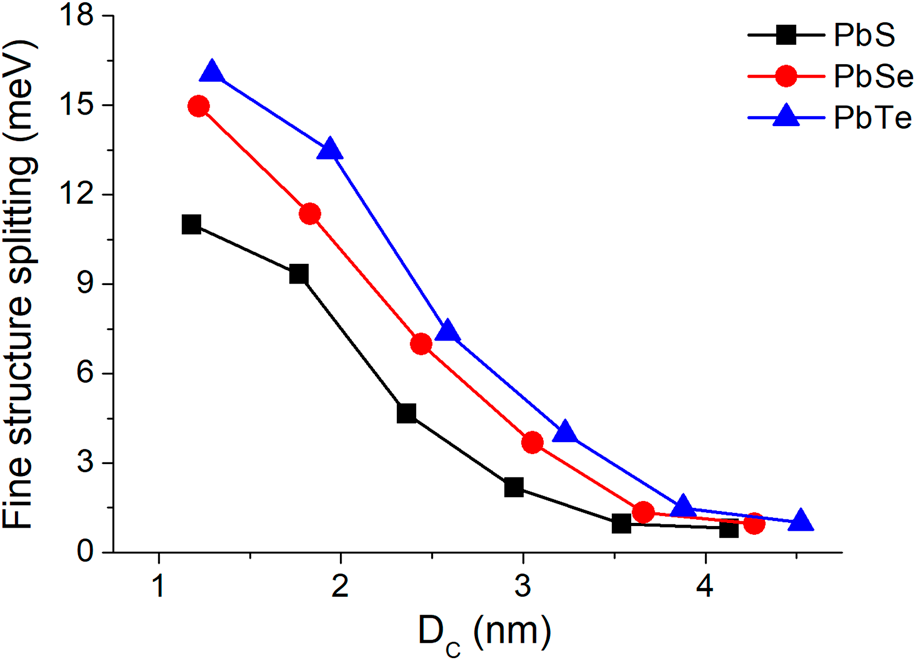Published online by Cambridge University Press: 05 March 2020

The computational tool integrating empirical tight binding and full configuration interaction method is utilized to study the structural and optical properties of spherical PbX (X = S, Se, and Te) nanocrystals under various diameters. The nanocrystal architecture plays an essential role in the control of the structural and optical properties. The appearance of the quantum confinement is caused by the reduction of the optical band gaps with the increasing diameters. By changing the chalcogenide types and diameters, the band gaps are modified, with their wavelengths from 380 to 2500 nm, technologically applying for the visible and near-infrared optical devices. The tight-binding band gaps agree well with previously published theoretical and experimental values. The atomistic electron–hole interactions are mainly influenced by the diameters and chalcogenide types. Using the Stokes shift and fine structure splitting, PbS nanocrystal with the immense size may be implemented as a source of entangled photon pairs and optical filter. Finally, the theoretical study reveals the distinctive properties of PbX (X = S, Se, and Te) nanocrystals by changing their architecture for applications in optoelectronic devices and microscopy.